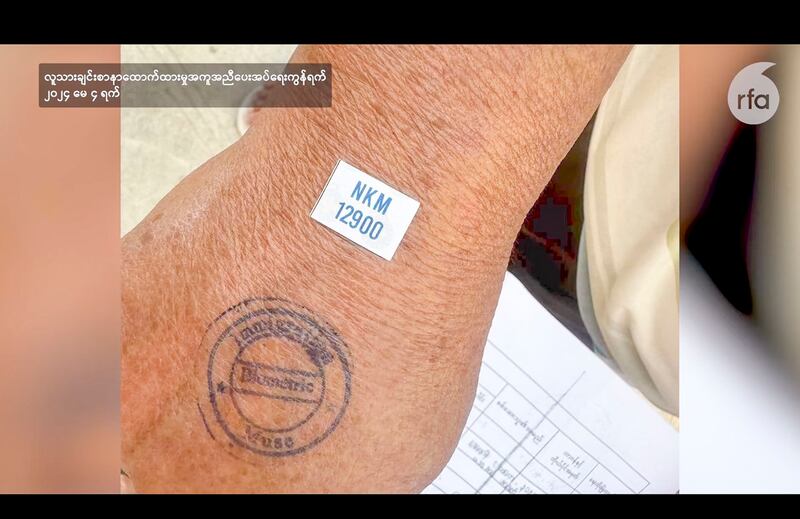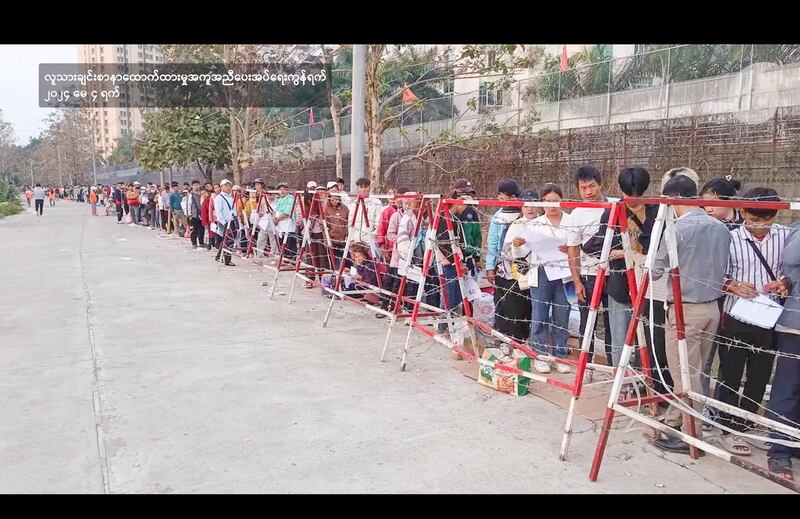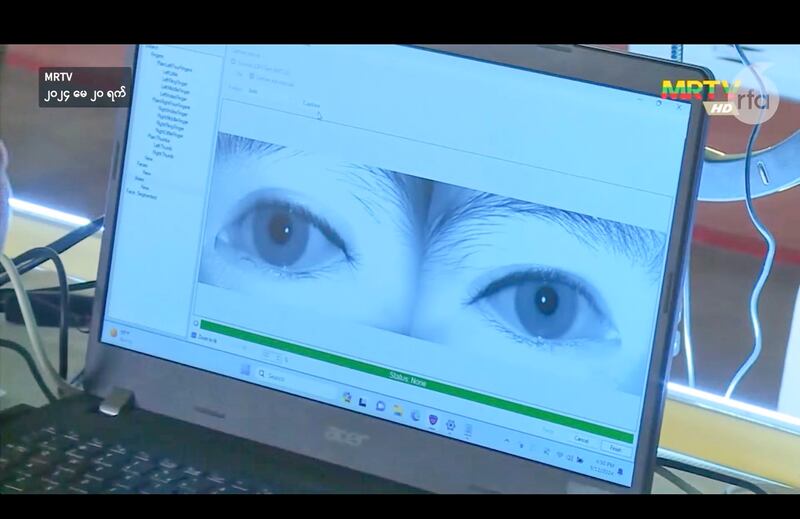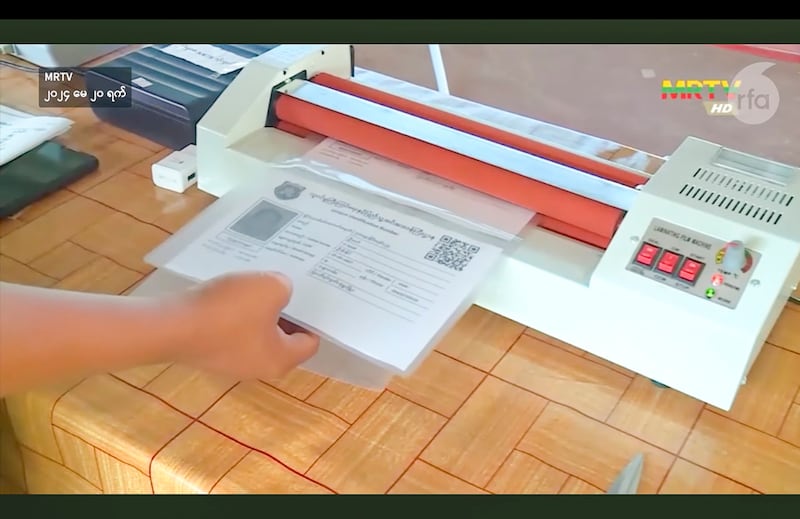New restrictions requiring Myanmar nationals to obtain a special “smart card” before they can cross into a neighboring country have led to long lines at checkpoints and a thriving black market for the cards in border towns, applicants said Monday.
The junta recently announced that, as of May 1, citizens entering China, Thailand and India will have to carry a 10-digit Unique Identification, or UID, card, as national ID cards will no longer be valid at border crossings.
The new policy follows the imposition of a military draft by Myanmar’s junta aimed at shoring up troop shortages brought on by losses to rebel forces. Many of those eligible for conscription have fled Myanmar’s cities for rebel-held territory or left the country, rather than fight for the junta.

On May 14, the junta’s Ministry of Immigration and Population said that it is free to apply for the new UID cards and that applicants can file a complaint with authorities if they are made to pay a fee to obtain one.
But the statement is little consolation to those who had regularly crossed the border for work until the announcement and now spend hours in line daily for an often futile shot at getting a card. Others have paid exorbitant bribes to purchase a UID from officials on the black market.
In the Shan state town of Muse, near the Myanmar-China border, the immigration department issues only 100 tokens for UIDs each day, despite long lines, according to applicants and residents.

Htay, the chairman of the Philanthropic Association of Muse, told RFA Burmese that at the current rate of distribution, many applicants won’t be able to get a UID until next year.
"Many people from Myanmar who work in China won’t get smart cards until 2025, so they’ll be unemployed for six or seven months,” he said. “They’ll lose their present job if they can’t go back to China in time.”
Htay said that there is only one machine capable of producing UIDs in Muse, which is hampering distribution.
Urgent service ‘fees’
But the capacity of the junta to produce UIDs is far smaller than the demand nationwide, prompting some entrepreneurial officials to provide same-day service cards at a cost of 50,000-600,000 kyats (US$12-150) for those who cannot wait.
A migrant worker from Kayin state’s Myawaddy township told RFA that he had to pay an official 200,000 kyats (US$49) for a UID to avoid losing his job across the border in Thailand’s town of Mae Sot.
“If I can’t enter Thailand, then I’ll lose my job,” he said, speaking on condition of anonymity due to security concerns. “Applicants ridiculously need to wait days before they can get a card, so I decided to use the ‘urgent service’ method.”

Another applicant in Myawaddy said only around 150 applicants receive UIDs each day and that immigration officials will summarily reject any application with incorrect information.
“Also, if the server is down, the official won’t even be able to issue cards,” he said.
San Aung, the director of the Mae Sot-based New Myanmar Foundation, which provides assistance to people displaced by conflict, said that young people have been flooding out of Myanmar however they can since the conscription law went into effect.

"We’re seeing this in particular at the borders,” he said. “In the past, only [dissidents] were hiding locally. But now we’re seeing tougher restrictions, with authorities checking … for anyone between the ages of 18 and 35 who might be trying to flee Myanmar to avoid mandatory military service."
Attempts by RFA to contact junta spokesperson Major General Zaw Min Tun for comment on the new UID policy went unanswered Monday.
The UID requirement for border crossings is the latest bid by the junta to crack down on would-be draft-dodgers. Myanmar on May 2 also announced the suspension of new permits for conscription-age men hoping to find jobs abroad.
Translated by Aung Naing. Edited by Joshua Lipes and Malcolm Foster.
